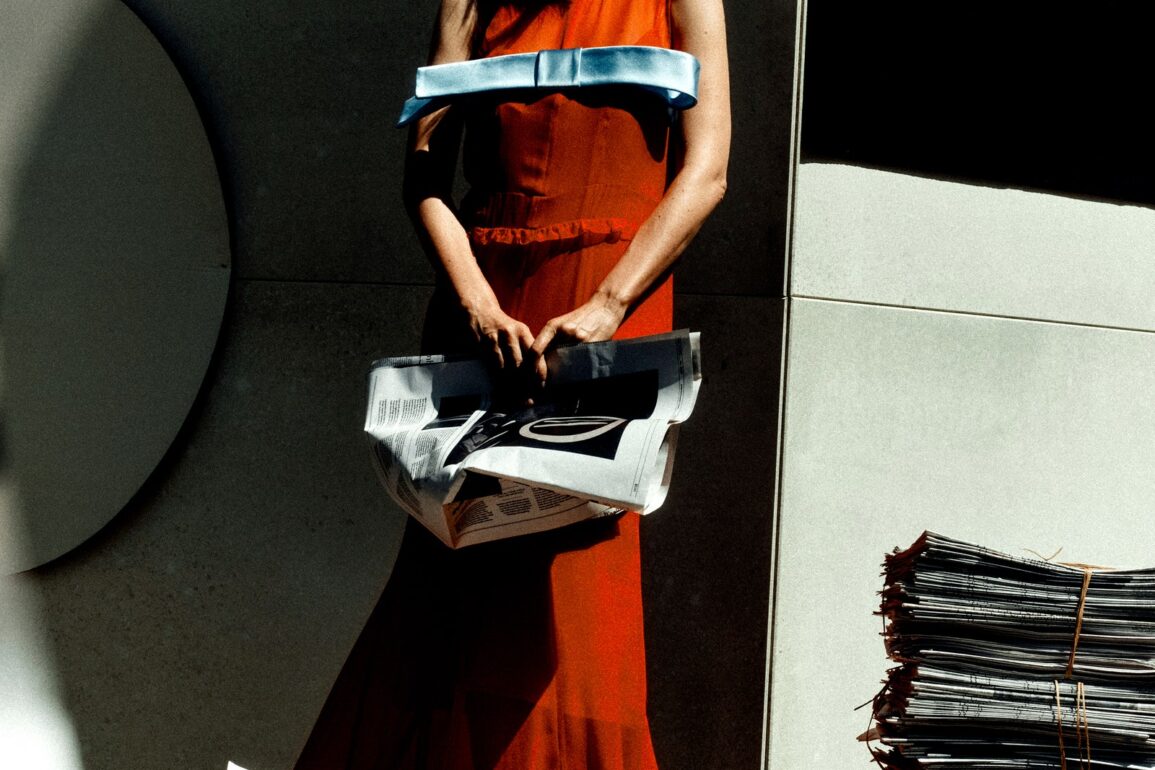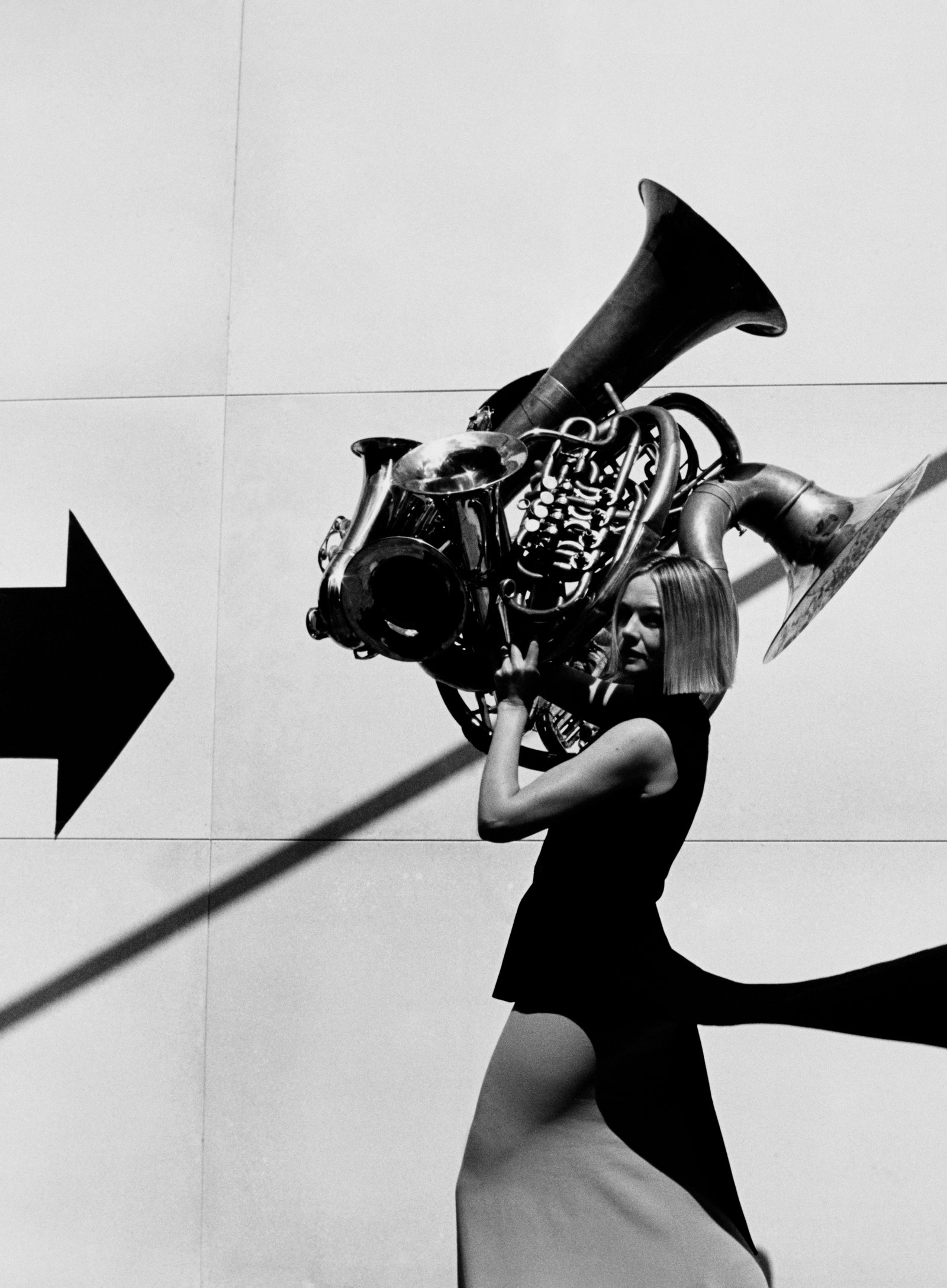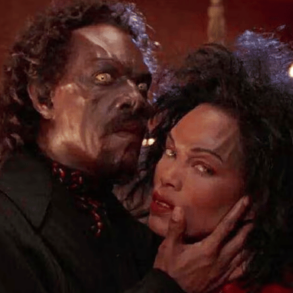“Hey! Look at these jeans!” Outfit change #2: Let’s call this one “Basic Bitch,” in deference to Emerald Fennell’s term of affection for Mulligan. Meaning—fun, unpretentious, up-for-whatever. A “giant latte, fluffy slippers, encyclopedic knowledge of D-list ’00s romances” kind of pal, Fennell details; “an all-rounder.” I get a taste of this side of Mulligan when her mother volunteers to babysit. We’d planned a hunt for vintage at Portobello Market, but, eyeing the fierce rain, divert to a West London boutique Mulligan calls, simply, “favorite shop.” “Not so bad!” she remarks, doing the familiar three-quarter turn to the mirror, to get a view of her backside in a pair of Rachel Comey trouser-cut jeans. “I actually look like a person!” The day we visit “favorite shop,” Mulligan is six weeks out from giving birth. In a month, she’ll decamp for Wales to film an oddball passion project: One for the Money, the brainchild of cult-fave British comedy duo Tom Basden and Tim Key. The jeans, Mulligan tells me, may well wind up in her wardrobe for the shoestring production.
“Nobody dies and nobody cries,” she says of the movie, which she jumped aboard because she’s a Basden-Key superfan. “I’ve never done a proper comedy before; I guess people don’t think I’m funny.”
Fennell disagrees. “Carey’s one of the funniest people I know,” she says, going on to note that she never questioned whether Mulligan could nail the precise, scathing comic tone of Promising Young Woman. “She was always the person I had in mind, because [the film] was going to be set in this somewhat heightened, allegorical world, and it needed someone completely real at its center.”
The awards recognition Mulligan—and Fennell—received for Promising Young Woman was hardly guaranteed at the outset. Another unusual trait of Mulligan’s, among Hollywood’s bankable actors, is that she’ll take a flier on first-time filmmakers, as Fennell was when the Promising Young Woman script landed on her desk. The element of risk appeals to her. “I’m terribly unstrategic,” Mulligan admits. “It’s really all about the script—and a part where I don’t know exactly how I’d do it. I think,” she adds, remarking on her disinclination to launch her own production shingle, “that’s why I don’t develop my own material. I’d know too much. I really prefer for a great project to hit me like a comet.”
Comets come in all shapes and sizes. Maestro gestated for years: Mulligan already had the part, as far as Cooper was concerned, when he invited her to co-narrate a performance of Bernstein’s Candide at the Philadelphia Orchestra in 2019; by the time shooting began, Mulligan had completed back-to-back films addressing #MeToo themes: Promising, a piece of poison-laced candy, and She Said, where Mulligan played one of the reporters of the story that launched the movement in the first place. The timing was happenstance, and for Mulligan, a worry; she knew she’d be called upon to act as a spokesperson. “I have my opinions, and I’m sure they’re clear, but I hate being put in the position of speaking ‘for all women.’ ” Who could? Mulligan’s feminism seems to run in the opposite direction, and demonstrates itself in her desire to inhabit, through her work, as wide a range of female points of view as possible. There’s certainly very little in common between Felicia Montealegre Bernstein and Poor Dear Pamela, Mulligan’s hilarious cameo character in Fennell’s new film Saltburn, out the same week as Maestro.
This post was originally published on this site be sure to check out more of their content.











